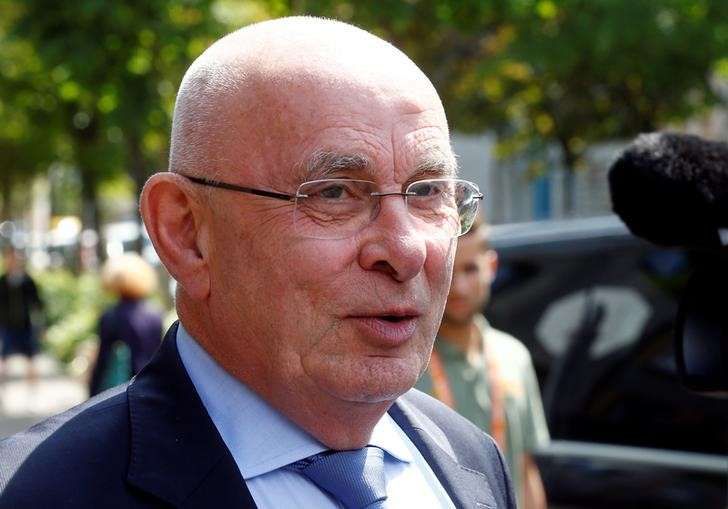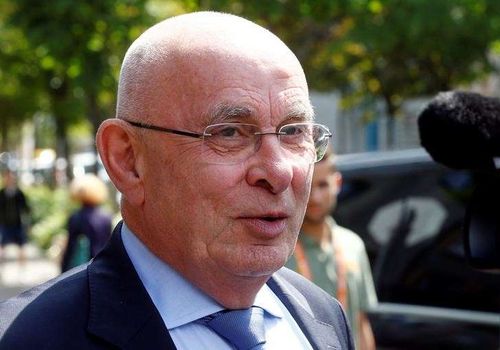
Factbox on the UEFA presidential candidates

ATHENS (Reuters) - UEFA will hold a presidential election on Wednesday to choose a replacement for disgraced Frenchman Michel Platini.
Platini was re-elected for a second time last year but resigned in May after being banned for four years by FIFA's ethics committee for unethical conduct.
His replacement will complete Platini’s mandate which runs until 2019. The new incumbent must tackle a growing financial split in European football between a small handful of elite clubs and the vast majority who live in a completely different reality.
Below are key facts about the two candidates who are running in Wednesday's election.
ALEKSANDER CEFERIN
A lawyer, he became involved in football when he began providing legal representation for players and clubs in his native Slovenia.
He was a director of top tier club Olimpija Ljubljana and played an active role in grassroots club FC Ljubljana Lawyers. He was elected as head of the Slovenian Football Federation in 2011.
Ceferin, 48, has received the public backing of some Nordic countries, most Balkan federations, Russia, Italy, France, Germany and Portugal, among others.
He has said that "the most important task we face is to create a balance between the various stakeholders and levels of football in Europe.”
He has said UEFA must make sure the big clubs do not form a breakaway league and tackle the gap between the rich clubs and the rest, although he realises this will not be easy.
He wants disciplinary rules changed so that fines are proportional to the size of the club or federation which is being penalised. He also wants term limits for the UEFA president and executive committee members. MICHAEL VAN PRAAG
A former amateur referee, his father Jaap van Praag was chairman of Ajax Amsterdam from 1964 to 1978 when they built a memorable team which won the European Cup three times in succession.
He followed in his father's footsteps by becoming president of Ajax himself in 1989, keeping the post for 14 years.
He was elected president of the Royal Dutch Football Federation in 2008 and re-elected five years later and has been on UEFA's executive committee since 2009.
As a businessman he set up a chain of tax-free audiovisual concessions at airports.
Van Praag has also voiced concern about the financial divide in European football and said in his manifesto that greater revenue from the Champions League should benefit all clubs and "not just the happy few".
He wants to ban the transfer of players under the age of 18 and for clubs to have at least 11 "home-grown players in their squads".
(Compiled by Brian Homewood; Editing by Toby Davis)